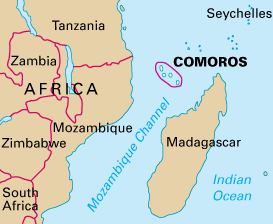Unprecedented Heat Wave in Madagascar
Madagascar, renowned for its biodiversity, is facing an alarming situation as it experiences a heat wave two months earlier than usual. The African island country encountered its hottest October on record this year, with temperatures surpassing 2.5°C above the average for that time of the year, a phenomenon usually observed in December or January.
World Weather Attribution’s Insights
The World Weather Attribution (WWA) conducted a study published in November 2023, revealing the unprecedented nature of the heat wave. Antananarivo, the capital city in the Madagascar highlands, home to over three million people, experienced intense and unusual heat during this period. The study emphasizes that Madagascar, already grappling with climate change impacts, will continue to face dangerously hot days and nights.
Climate Change’s Impact on the Heat Wave
The study aimed to quantify the influence of climate change on Madagascar’s heat wave. Researchers analyzed weather data and model simulations, concluding that the October heat wave and seven-day minimum temperatures in Antananarivo were at least 100 times more likely due to climate change. These extreme conditions would have been nearly impossible in a world 1.2°C cooler, without the influence of fossil fuel-driven warming.
Local Perspectives and Concerns
The unusually hot October has left the Malagasy people perplexed and worried. Farmers express concerns about poor rains, impacting agricultural activities. A woman in Antananarivo reflects on the atypical climate, stating that December is ending, yet there are no signs of rain. The impact on rice fields is evident, with the soil solidly compact due to insufficient moisture.
Vulnerability and Health Risks
The study highlights the vulnerability of the population to extreme heat, with 91% living in poverty and 50% lacking access to clean water and electricity. Informal housing further restricts common coping strategies, putting the majority at risk. The consequences extend to health risks, as warmer temperatures have expanded the range of mosquitoes in Madagascar, leading to an increase in malaria cases.
Calls for Resilience Building
Madagascar’s high vulnerability underscores the need for increased investment in weather forecasting, early-warning systems, and heat planning. The study stresses the importance of community and government initiatives to enhance resilience, especially with the intensification of heatwaves predicted for the region. The October heatwave in Madagascar serves as a stark reminder of the critical need for climate adaptation measures in vulnerable nations.
Global Hunger Index and Urgency for Action
Madagascar ranks 124th out of 125 countries in the 2023 Global Hunger Index, with a score signaling alarming levels of hunger. The urgency to address climate-related challenges and their impact on vulnerable populations is evident, emphasizing the imperative for international cooperation and support to build resilience and mitigate the consequences of extreme weather events.
Month: Current Affairs - December, 2023
Category: Environment Current Affairs


